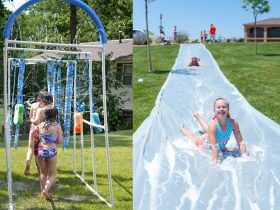Navigating the teenage and young adult years can be a challenging journey for individuals with autism and learning differences. As these individuals transition from adolescence to adulthood, they often face unique social, educational, and emotional challenges that require thoughtful and tailored support. In recent years, there has been a growing recognition of the importance of fostering environments that empower teens and young adults with autism to thrive. From inclusive educational practices to community programs that prioritize neurodiversity, there is a concerted effort to create a more supportive and understanding world for this demographic. In this article, we explore the diverse ways in which society can contribute to the well-being and success of teens and young adults with autism and learning differences.
Reader's Roadmap
Inclusive Education
One of the key pillars of support for teens and young adults with autism lies in creating inclusive educational environments. Traditional educational settings can pose significant challenges for individuals with autism spectrum disorder (ASD) and other learning differences. Inclusive education, however, emphasizes adapting teaching methods to meet the diverse needs of students. This involves providing additional support, such as individualized education plans (IEPs) and classroom accommodations, to ensure that each student can learn effectively. Inclusive education not only benefits students with autism by fostering a sense of belonging but also enhances the overall learning experience for their neurotypical peers. By creating an inclusive culture in schools, society can better prepare these individuals for the opportunities and challenges they will encounter as they transition to adulthood.
Specialized Support Services
Amid the journey of navigating the challenges of autism and learning differences, specialized support services play a crucial role in nurturing the growth and independence of teens and young adults. Recognizing the need for tailored assistance, you should consider finding a Center For Learning and Autism Support Services that offers comprehensive support beyond traditional educational settings. These kind of centers provide a range of specialized interventions, including targeted tutoring, life skills coaching, and therapeutic support. By tailoring their approach to individual needs, these centers empower young individuals with autism to build essential skills, boosting their confidence and readiness for the demands of adulthood. As an integral part of the broader support network, these specialized services complement inclusive education and vocational training efforts, ensuring a holistic approach towards fostering a more supportive and understanding society for individuals with autism and learning differences.
Vocational Training and Employment Opportunities
As teens with autism progress into young adulthood, the focus often shifts from educational settings to vocational training and employment opportunities. It is crucial to recognize and nurture the unique strengths and skills of individuals with autism, ensuring they can contribute meaningfully to the workforce. Some organizations and businesses are actively working towards creating inclusive employment practices, providing a supportive environment for individuals with autism to thrive in their chosen careers. Vocational training programs that offer specialized skill development and job placement assistance can play a pivotal role in empowering these young adults to achieve independence and financial stability. By championing inclusive hiring practices and fostering a workplace culture that values neurodiversity, society can help bridge the gap between education and employment for individuals with autism.

Community Programs
Beyond the realms of education and employment, social inclusion plays a critical role in the lives of teens and young adults with autism. Community programs that cater to their unique needs not only provide opportunities for socialization but also contribute to overall well-being. These programs can range from recreational activities and clubs to therapeutic support groups that address emotional and social challenges. By fostering a sense of community and understanding, these programs not only benefit individuals with autism but also contribute to a more inclusive society at large. It is essential for communities to actively engage and collaborate with individuals with autism, recognizing their strengths and contributions, and creating spaces where they feel valued and understood.
Supporting teens and young adults with autism and learning differences requires a multifaceted approach that spans education, employment, and community engagement. By championing inclusive education, fostering vocational training and employment opportunities, and promoting community programs that prioritize social inclusion, society can empower individuals with autism to lead fulfilling lives. As we continue to evolve towards a more inclusive and understanding world, we must recognize and celebrate the unique strengths and potential of every individual, regardless of their neurodiversity.







Leave a Reply
View Comments